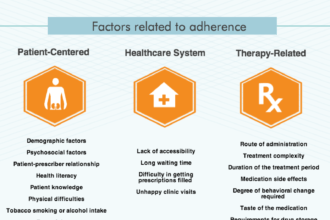Finding ourselves on the cusp of the close of Older Americans month and the entrée to the summer season – Memorial Day, it seems fitting to mention the “Never too Old to Play” theme. Through this mantra, older Americans are encouraged to stay engaged, active and involved in their own lives and in their communities. And, one can think of no more important way to stay vital than by playing an active role in one’s individual healthcare decision-making.
According to the Administration on Aging, the older population–persons 65 years or older–numbered 39.6 million in 2009 (the latest year for which data is available). Representing 12.9% of the U.S. population, they account for one in every eight Americans. By 2030, there will be about 72.1 million older persons, more than twice their number in 2000. People 65+ represented 12.4% of the population in the year 2000 but are expected to grow to be 19% of the population by 2030.
As outlined in Older Americans – Key Indicators of Well-Being, in 2006, on average, individuals 65-74 incurred close to $10,000 in healthcare costs, while those 75+ averaged between $18,000- $24,000, depending on the number of chronic conditions present. With a significant number of individuals rapidly approaching this age, how do we keep seniors actively engaged in good health?
One potential area ripe for opportunity: using the Medicare Wellness benefit to deliver preventive services – according to the John A. Hartford Foundation, a New York City nonprofit that works to improve the well-being of seniors and supports expanded geriatric training for physicians and other health professionals. In their recent telephone poll, only 7% of the surveyed seniors said they received each of the key preventive services identified by geriatric experts, including an annual medication review and referral to non-medical services such as support groups and exercise programs. With a mere 17% of the group taking advantage of the Medicare Wellness benefit, marketing and outreach efforts must be improved.
With increasing numbers of aging individuals preferring to remain in their homes, the ability to obtain preventative healthcare services becomes tantamount. Recognizing this need, Intel-GE Care Innovations has developed several products for senior care – QuietCare, Connect, and Guide. Care Innovations’ QuietCare uses a wireless platform that can be used to provide information about the safety and security of an individual. It can detect and alert caregivers to falls or changes in behavior, which can help retain residents by detecting emergencies sooner and preventing hospitalizations. A second Intel-GE Care Innovations product, Connect, provides a portal to allow senior living communities to virtually engage with residents, family, friends, and/or to a wellness coach.
The Guide product is a telehealth hub that’s designed specifically to engage seniors with one or more chronic diseases. Through remote monitoring and medication compliance, the system seeks to prevent urgent care, emergency room visits and hospital readmissions. While these efforts are surely a step in the right direction, another company, iRobot, has developed perhaps the most forward thinking means of assisting elders in their at-home preventative care – Ava, the robot. In essence, a mobile tablet, the ingenuity in this set-up resides in the ability to equip Ava with Siriesque voice activation – and with it, the ability to address companionship and other psychosocial needs.
Knowing that this is just the tip of the iceberg, what are other innovative ways for older Americans to be never too old to play?









